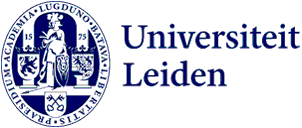
Polish Holocaust researchers accused of defamation will give Cleveringa Lecture
On 26 November historian Jan Grabowski and sociologist Barbara Engelking will both give the Cleveringa Lecture. They wrote a book about the Holocaust in Poland and were taken to court for defamation.
It is a first: a joint inaugural lecture by two Cleveringa professors (register here!). Grabowski and Engelking have come under fire in Poland for their book Night without End. The Fate of Jews in Selected Counties of Occupied Poland. This book about the Holocaust in Poland was published in 2018 to glowing praise from the academic world, but it is controversial in Poland because of the shameful histories it reveals. Like the story of Edward Malinowski, the wartime mayor of the village of Malinowo. The authors say he handed over a group of 22 Jews to the Nazis, who later murdered them. Malinowski’s surviving niece claims that the opposite is true: she says her uncle helped Jews during the war.
Since 2018 it has been a criminal offence in Poland to publicly accuse ‘the Polish nation’ of complicity in the Holocaust.
Guilty of defamation
At the start of 2021 a lower court in Warsaw ruled that Grabowski and Engelking were guilty of defamation and ordered them to apologise. The two appealed the verdict and the Warsaw Court of Appeal overturned the ruling later this year. The judge added that a court can never judge scientific research. This did not mean the case was over, however, because the lawyers for the plaintiff – Malinowski’s niece – said they would appeal the verdict.

Jewish persecution
Professors Grabowski and Engelking were nominated for the Cleveringa chair by Leiden Law School and the Faculty of Humanities, at the suggestion of Professor of European Law Jorrit Rijpma. Why did he nominate the two researchers? ‘Their research relates to Cleveringa’s protest speech (see below, ed.) and the topic of Jewish persecution,’ says Rijpma. The researchers’ work also ties in with the work of American Holocaust expert Timothy Snyder, who gave the Cleveringa Lecture in 2012.
Rule of law under threat
The situation in Poland is also relevant. Rijpma: ‘As we know, the rule of law there has been under threat for several years. The independence of the courts is at risk, and Grabowski and Engelking have now discovered that academic freedom is under discussion. The case against them was a civil one, but this was against the backdrop of a law from 2018 that makes it a criminal offence to publicly accuse “the Polish nation” of complicity in the Holocaust. In the spirit of Cleveringa and our Leiden motto of Praesidium Libertatis, we want to give Grabowski and Engelking the chance to speak freely about their research,’ says Rijpma.
Who are Engelking and Grabowski?
Barbara Engelking (1962) is a Polish sociologist from the Institute of Philosophy and Sociology in Warsaw. She is also director of the Centre for Holocaust Research in Warsaw and has been chair of the Polish International Auschwitz Council since 2014. She has written various studies about the Holocaust in Poland.
Jan Grabowski (1962) is a Polish-Canadian historian and professor from the University of Ottawa in Canada. He also specialises in the Holocaust in Poland. He and Engelking started the Centre for Holocaust Research together. He won the Yad Vashem International Book Prize for his seminal work Hunt for the Jews: Betrayal and Murder in German-Occupied Poland (2013).

For the first time since the Cleveringa chair’s inception in 1970, this academic year there will be two Cleveringa professors. Jan Grabowski and Barbara Engelking will each talk for half an hour in the Academy Building on 26 November. Every year the University remembers the victims of the Second World War – at least 663 students, staff and alumni perished. It also remembers the protest speech given by Dean of the Faculty of Law, Rudolph Cleveringa. On 26 November 1940, he condemned the dismissal of his Jewish colleague Eduard Meijers. and was arrested afterwards. Meijers was deported to Westerbork and from there to Theresienstadt, where he survived the war. Other Leiden professors including professor of law Ben Telders, professor of medicine Ton Barge and professor of theology Lambert van Holk also protested openly against the Nazis. Of the three, Telders did not survive the war. The Cleveringa chair is a rotating one-year professorship.
Text: Linda van Putten
Photo: Reuters/ANP
